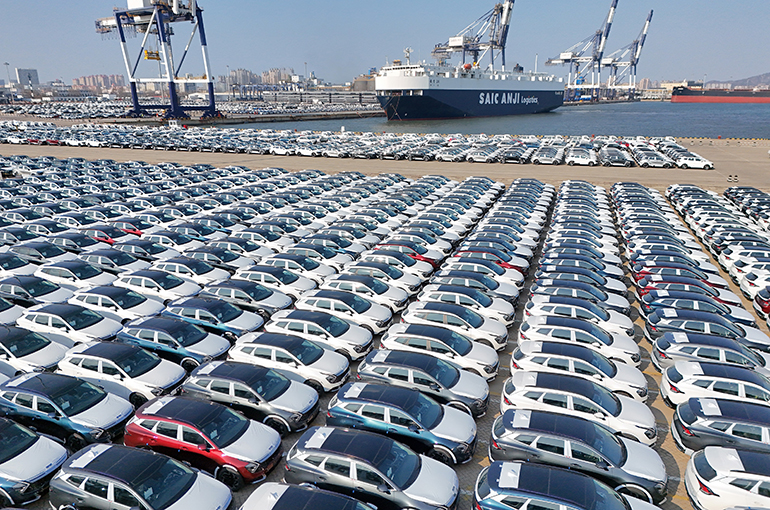 China's Car Exports to Mexico, UAE Surge, Those to Russia Plunge in First Half
China's Car Exports to Mexico, UAE Surge, Those to Russia Plunge in First Half(Yicai) Aug. 4 -- China saw auto exports to its top three markets differ in the first half of this year, with shipments to Mexico and the United Arab Emirates soaring while those to Russia tumbled.
Car exports to Mexico rose 31 percent to 234,500 units in the six months ended June 30 from a year earlier, ranking it as the top market, according to data released by Chinese auto information platform Yiche yesterday. The jump was mainly thanks to soaring demand for BYD's Seagull and Song PLUS DM-i.
Exports to the UAE surged 59 percent to 214,300 vehicles, driven by accelerated shipments from automakers such as Geely Automobile Holdings to the Middle East. The country's role as a regional auto distribution hub further lifted its imports of Chinese autos.
However, China saw auto exports to Russia plunge 59 percent to 171,000 units, the biggest fall among major markets. According to analysts, the drop was due to increased purchasing costs due to a jump in car loan rates and import vehicle scrap taxes, as well as Chinese carmakers' high inventory.
China's total auto exports climbed 10.4 percent to 3.08 million units, with new energy vehicle shipments jumping 75 percent to 1.06 million units, according to the China Association of Automobile Manufacturers.
Brazil's imports of Chinese cars fell 7.9 percent to 155,200 units and ranked fourth, while Kazakhstan secured the 10th spot after its relevant imports more than doubled to 77,600 units. Belgium, the United Kingdom, Saudi Arabia, Australia, and the Philippines made the rest of the top 10.
Chery Automobile exported the most autos with 544,900 units in the first half, down 3.5 percent from a year ago, followed by BYD with 443,100 units, which saw the figure surge 118 percent. SAIC Motor Passenger Vehicle ranked third after its shipments fell 4.1 percent to 242,600 units, while Geely, Great Wall Motor, Changan Automobile Group, and SAIC-GM-Wuling placed fourth to seventh.
Exports of Tesla China tumbled 32 percent to 101,100 vehicles, of Jiangsu Yueda Kia rose 21 percent to 85,800 units, and of Beijing Hyundai soared 248 percent to 34,800 units.
Editor: Martin Kadiev